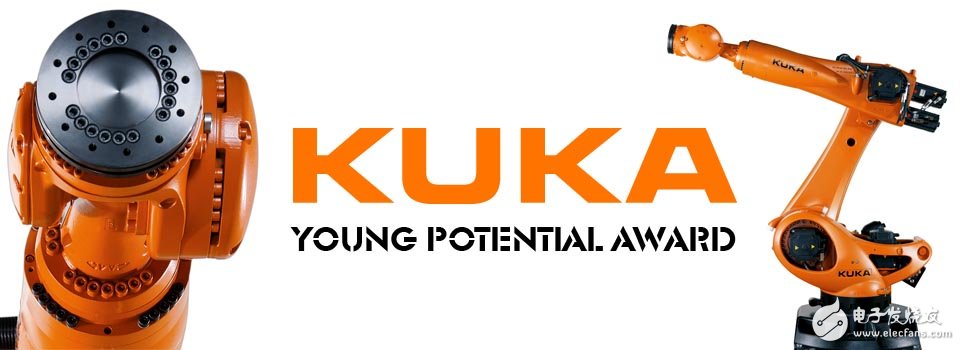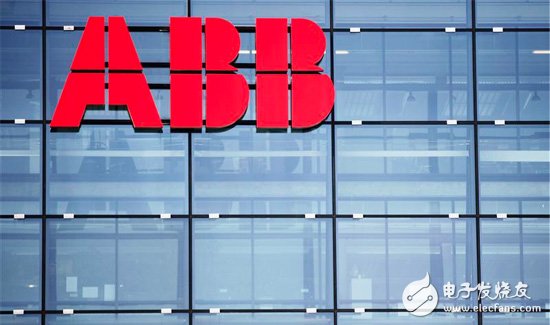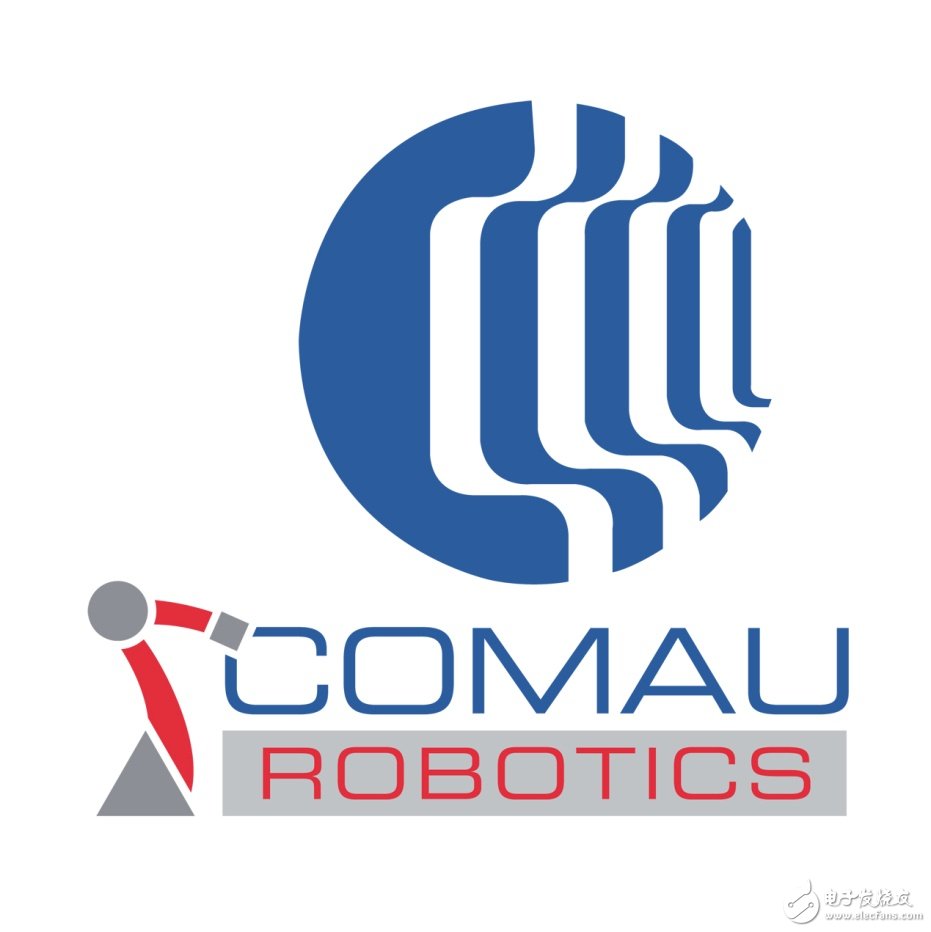With the development of intelligent equipment, the advantages of robots in industrial manufacturing are becoming more and more obvious, and robot companies have sprung up. However, the leading companies are the leading companies.
1. FANUC

FANUC (Fanaco) is a Japanese company specializing in CNC systems. It was founded in 1956. It is the world's largest professional CNC system manufacturer, accounting for 70% of the global market share. FANUC first introduced the electro-hydraulic stepper motor in 1959. In the following years, the hardware-based open-loop CNC system was gradually developed and perfected. In the 1970s, microelectronics technology, power electronics technology, and especially computing technology developed rapidly. FANUC resolutely abandoned its electro-hydraulic stepper motor numerical control products, and introduced DC servo motor manufacturing technology from GETTES.
In 1976, FANUC developed the CNC system 5, and then jointly developed a CNC system with advanced level with SIEMENS. From then on, FANUC gradually developed into the world's largest professional CNC system manufacturer.
Since FANUC's first robot was introduced in 1974, FANUC is committed to robotics leading and innovation. It is the only company in the world that uses robots to make robots. It is the only robot company in the world that provides integrated vision systems. It is the world's The only company that offers both intelligent robots and smart machines. The FANUC robot series has a total of 240 types, with loads ranging from 0.5 kg to 1.35 tons. It is widely used in assembly, handling, welding, casting, painting, palletizing and other production processes to meet the different needs of customers.
In June 2008, FANUC became the world's first manufacturer to break through 200,000 robots; in 2011, FANUC's global robotic installed capacity exceeded 250,000 units, ranking first in the market.
2. KUKA

KUKA and its German parent company are the world's leading manufacturers of industrial robots and automatic control systems. It was founded in Augsburg, Germany in 1898, when it was called "Keller and Knapich Augsburg. (KellerundKnappichAugsburg)". The company's name KUKA is the four initials of KellerundKnappichAugsburg. In 1995, KUKA was divided into KUKA Robotics and KUKA KUKA Welding Equipment Co., Ltd. (now the KUKA Manufacturing System). In March 2011, the Chinese company was renamed: KUKA Robotics (Shanghai) Co., Ltd.
KUKA products are widely used in the automotive, metallurgy, food and plastic forming industries. KUKA Robotics has more than 20 subsidiaries worldwide, most of which are sales and service centers. KUKA's global operations include: the United States, Mexico, Brazil, Japan, South Korea, Taiwan, India and European countries.
KUKA industrial robot users include General Motors, Chrysler, Ford, Porsche, BMW, Audi, Mercedes-Benz, Volkswagen, Harley-Davidson, Boeing, Siemens (Siemens) ), IKEA, Wal-Mart, Nestle, Budweiser, and Coca-Cola.
1973KUKA developed its first industrial robot called FAMULUS. This is the world's first electromechanically driven 6-axis robot. Today, the company's four- and six-axis robots have a payload range of 3–1300 kg and a robotic arm range of 350–3700 mm. The models include: SCARA, palletizers, gantry and multi-joint robots, all based on universal PC controllers. Platform control.
The most versatile applications for KUKA's robotics include factory welding, handling, palletizing, packaging, processing or other automated operations, as well as hospitals such as brain surgery and radiography.
KUKA Industrial Robots have appeared in many Hollywood movies. In the film "The New Iron King Kong is not a murder machine", in an ice palace in Iceland, the National Security Agency agents are threatened by laser welding robots. In the movie "Da Vinci Code", a robot handed Robert Langdon a box with a cryptex, etc., all using the KUKA robot.
3. That wisdom is not the second

In recent years, the robot industry has developed rapidly due to rising labor costs and endogenous demand for corporate transformation and upgrading. According to the International Federation of Robotics, the global robotics market grew by 37% year-on-year in 2011. Sales of robots in East Asian markets such as South Korea and Japan have both increased, while sales of industrial robots in China have increased by 51% from 2010, making it the market with the largest increase.
According to IFR data, China is expected to become the world's largest robot market in 2014. The robot industry will be the new high-tech industry with the most potential after the automobile and computer. Nowadays, international robot giants have poured into China to invest and build factories.
Nazhi Fujio was established in Japan in 1928, and in 2003 established Nazhi Fuji (Shanghai) Trading Co., Ltd. Now, the company belongs to a sales organization in China. At present, Nazhi has two bearing factories in China, a precision tool grinding factory, a welding factory, and plans to expand the industrial base in the future.
Nazhi is the all-round integrated manufacturing enterprise from raw material products to machine tools. There are a wide range of products such as machining, industrial robots, and functional components. The fields of application are also extensive, such as aerospace industry, rail transit, automobile manufacturing, and machining.
“The whole product series of Zhizhi Fuji is mainly aimed at the automotive industry.†Luo Baihui, secretary general of the International Association of Mould & Hardware Plastics Industry Suppliers, said that the product of Zhizhi Fujio is following the automobile industry. Wherever there is automobile manufacturing, there is a product that is intelligent. Not just robots, but also other products, such as bearings, hydraulic parts and other auto parts. The more the wisdom is made from materials, then to steel, machining tools, bearings, hydraulics, machine tools and robots, most of which are related to the automotive industry.
At present, Nazhi has more than 15% of the company's global sales in the Chinese robot sales market. The wisdom of the world is expanding from the European and American markets to the Chinese market. The next step is to develop Southeast Asian markets, such as the Indian market, which is a market area that the company pays more attention to in the future.
4. Kawasaki Robot

Kawasaki Robot (Tianjin) Co., Ltd. is 100% invested by Kawasaki Heavy Industries Co., Ltd. and was officially registered in Tianjin Economic and Technological Development Zone in August 2006. It is mainly responsible for the sales and after-sales service of industrial robots produced by Kawasaki Heavy Industries in China. (Robot maintenance, maintenance, repair, etc.), technical support and other related work.
Kawasaki Robots offers a wide range of robotic products on the logistics line, with significant sales in beverages, food, fertilizer, solar, and tile. Kawasaki has a wide range of robots such as palletizing and handling, providing the most suitable robots, the most professional after-sales service and the most advanced technical support for different conditions and different needs of customers' workshops. The company also has a wealth of parts in the library to provide customers with the necessary accessories in a timely manner, and the company has a display spray robot, welding robots, and test spray booths to provide customers with a variety of related services.
The company relies on a high degree of comprehensive technical strength to provide high-performance, high-quality, highly secure products and services as its mission, to gain the trust of society and customers; to fully understand the social responsibility of enterprises, with integrity, vitality and high organizational And the mutual trust between the two sides is fundamental and continuous improvement.
5.ABB robot

ABB, which was founded in Europe in 1988, entered China in 1994 and ABB China Ltd. was established in 1995. Since 2005, the production, R&D and engineering centers of ABB robots have begun to transfer to China, which shows that the international robot giants attach importance to the Chinese market. At present, China has become the world's largest market for ABB.
In 2011, ABB Group's sales reached US$38 billion, of which sales in China reached US$5.1 billion, an increase of 21% year-on-year. In recent years, some advanced robot companies in the world have targeted China's huge market demand and entered China in a big way.
At present, ABB robot products and solutions have been widely used in various operations such as welding, assembly, handling, painting, finishing, packaging and palletizing in many industries such as automobile manufacturing, food and beverage, computer and consumer electronics, helping customers to greatly improve. Its productivity. For example, the 70 ABB's smallest robot IRB120 installed on the production line of the Leibai Company's Shenzhen plant this year not only liberated the workers from the tedious and mechanized work, but also doubled the production efficiency and reduced the cost by half. In addition, the flexible nature of these robots has helped Rebec to reduce engineering design and reduce the development time of automated equipment by 15%.
6. Stäubli

The Stäubli Group manufactures precision mechanical and electronic products: textile machinery, industrial joints and industrial robots. The company employs more than 3,000 people and has an annual turnover of more than one billion Swiss francs. The company was founded in 1892 in the city of Horgen on the shores of Lake Zurich in Switzerland. Today, Stäubli has developed into a multinational company based in Switzerland. ;ffikon city.
Since 1982, Stäubli has applied its advanced mechanical manufacturing technology to the field of industrial robots, and with its excellent technical services, Stäubli industrial robots have quickly become one of the world's leaders.
A complete range of light, medium and heavy duty robots, 4-axis SCARA robots, 6-axis robots, special robots, dedicated to many different industries (clinker, machine tool processing, life sciences, food, photovoltaics, semiconductors, etc.) and applications (spraying, Machining).
So far, Stäubli has developed a full range of robots, including SCARA four-axis robots, six-axis robots, special robots, controllers and software for injection molding, painting, cleanroom, machine tools and more. No matter which type of robot you choose, it is controlled by a unified platform. It includes: the same category of CS8 controller, a robot programming language and a set of Windows? ;; environment PC software package, the simple Stäubli design can meet your most professional needs. In addition to product quality, Stäubli recognizes that providing comprehensive, fast and effective services is an important reason why customers are willing to maintain long-term and stable cooperation with us. So whether it's technical sales support and integrator partnerships, application programming support, on-site maintenance and remote diagnostics, or training and maintenance, it's all about Stäubli's unparalleled quality of service. With its complete range of products and high quality reliability, Stäubli stands out from all key areas of robotics.
Industrial robots currently produced by Stäubli have the features of faster speed, higher precision, better flexibility and a better user environment. For the plastics industry, Stäubli has developed a series of robots for the PlasTIcs series of robots, including TXplasTIcs40, TXplasTIcs60, TXplasTIcs90 and TXplastics160. It is equipped with the corresponding VAlPlast plastic industrial application software, which fully realizes the auxiliary operation of the injection molding machine (gate, inspection, bonding, etc.), and can also be used in a clean or sterile environment. At the same time, we provide a platform that goes directly into the Insight system without programming, using the navigation system to identify, measure, and position parts; and real-time correction of the robot, such as monitoring the injection thimble, to control the external force of the unloading of the workpiece. The fast and easy user interface simplifies the work of the machine operator, and the application of navigation commands brings maximum productivity and increased throughput.
7. Comau

As early as 1978, Comau pioneered the development and manufacture of the first robot, named POLARHYDRAULIC robot. In the following decades, Comau became the leader in robotic automation integration solutions with its innovative technology. The full range of robot products developed by Comau has a load range of up to 6 kg and a maximum of 800 kg. Comau's latest generation SMART series robots are the technology core of SMART automation applications for spot welding, arc welding, handling, press automatic bonding, casting, gluing, assembly and cutting. Its "hollow wrist" robot NJ4 has an unparalleled technical advantage in the field of spot welding.
The SmartNJ4 series of robots fully covers the basic features of the fourth generation of products, because of the new dynamic structure design, reducing the weight and size of the robot, while achieving better performance, reducing cycle time and energy consumption, reducing operating costs while products Performance has been greatly improved. Many features of the Comau SmartNJ4 series of robots can give customers a refreshing feeling. First, the hollow structure allows all the torch cables and signal lines to pass through the inside of the robot, ensuring robot flexibility, penetration and adaptability. Secondly, the free choice of standard and compact versions enables optimal deployment of the field layout based on the customer's project needs. In addition, energy saving, perfect system structure, integrated external equipment, etc. make the SmartNJ4 series robots a special and revolutionary project. At present, Comau intends to manufacture products in China, so that the SmartNJ4 series robots can be fully localized.
8. Epson robot (manipulator)

Epson robot (manipulator) originated from the assembly line of Seiko watches in 1982; in October 2009, Epson robot (manipulator) officially established a service center and marketing headquarters in China, which is affiliated with Epson (China) Co., Ltd., and is fully responsible for mainland China. Marketing, sales, technical support and after-sales service of Epson industrial robots (manipulators). After the establishment of the new regional headquarters, the market price of the Epson robots in mainland China was first repositioned, making Epson robots (manipulators) products more in line with the actual needs of advanced manufacturing enterprises in mainland China.
At present, the products promoted in China are mainly 4-axis industrial robots (manipulators) and 6-axis industrial robots (manipulators), and provide industrial robot (manipulator) accessories commonly used in the industry.
Epson robots (manipulators) mainly promote products in China: high-speed robots (manipulators), high-precision robots (manipulators) SCARA robots (manipulators), horizontal articulated robots (manipulators), visual robots (manipulators), assembly robots (manipulators) , handling robot (manipulator), automatic assembly robot (manipulator) system, laser automatic welding robot (manipulator) system, laser automatic cutting robot (manipulator) system, flexible automated robot (manipulator) system, modular robot (manipulator) system, flexible module Robot (manipulator) system, etc.
As a leader in the field of horizontal multi-joint industrial robots, Epson's new LS series is designed to reduce heavy manual operations. use
After the LS series, users can achieve efficient assembly, transportation, adjustment and layout operations, which not only reduces the number of personnel in the production process, but also ensures the stability of product quality. Epson's vertical six-axis robot (S5/S5L) features high speed, high precision and low vibration, and is the fastest of the small six-axis robots. Luo Baihui believes that the commercial and industrial sectors as well as the new economies are important growth markets in the future. Focusing on market demand, Epson will strengthen its technical support and services to local customers while launching more excellent products, and redouble its efforts to meet customers' growing product demands and expectations.
Epson industrial robots (manipulators) provide high-speed, high-precision, low-vibration, and miniaturized features to provide Chinese users with global technology-leading high-performance products. At the same time, Epson has unique advantages in vision systems, conveyor tracking technology and robotic (mechanical) force feedback application technology. Based on these technologies, Epson robots (manipulators) make unique and cost-effective system design possible for Chinese industrial robots (manipulators). The application provides a broader application space.
9. Yaskawa, Japan

The multi-functional robot Motoman is based on the concept of “providing solutionsâ€. The Yaskawa Electric robot product series is constantly evolving. It pays attention to the dialogue between customers and provides the most suitable for a wider range of needs and various problems. The solution and implementation of the full line of support for the FA.CIM system.
As of March 2011, the company's total number of robots sold has exceeded 230,000 units, and it is active in welding, handling, assembly, spraying, and liquid crystal displays, plasma displays, and semiconductor manufacturing in clean rooms from Japan to countries around the world. It is various industrial fields such as transportation and transportation.
Yaskawa industrial robots in Japan have always been favored by users. Yaskawa opened a new robot center in Ribnica, Slovenia. The center was the European center before 2013. Yaskawa transferred the German production line to Slovenia and worked with local MotomanRobotec and Ristro. The two local companies have been renamed Yaskawa Slovenia and YaskawaRistro. Yaskawa Ristro plans to meet 60% of Europe's demand for synthetic robots and become a leading European robot peripheral product by 2013. Synthetic robots are used in the automotive industry, the metalworking industry, the food manufacturing industry, and the pharmaceutical industry.
10. Xinsong Robot

China’s only top 10 is a long way to go!
Xinsong Robot Automation Co., Ltd. (hereinafter referred to as “Xinsong Companyâ€) is a high-tech enterprise focusing on robotics and automation technology, focusing on digital high-end equipment manufacturing, in industrial robots, intelligent logistics, automated equipment, and clean equipment. The fields of laser technology equipment, rail transit, energy-saving and environmental protection equipment, energy equipment, special equipment and intelligent service robots are industrialized. It has become China's largest robot industrialization base. The Xinsong Southern Research and Innovation Center and industrialization base invested and constructed in Hangzhou will focus on the development of laser automation equipment and clean robots.
Dell latitude 3140,Dell latitude 3140 replacement parts,Dell latitude E3140,Dell latitude 3140 parts
S-yuan Electronic Technology Limited , https://www.syuanelectronic.com
